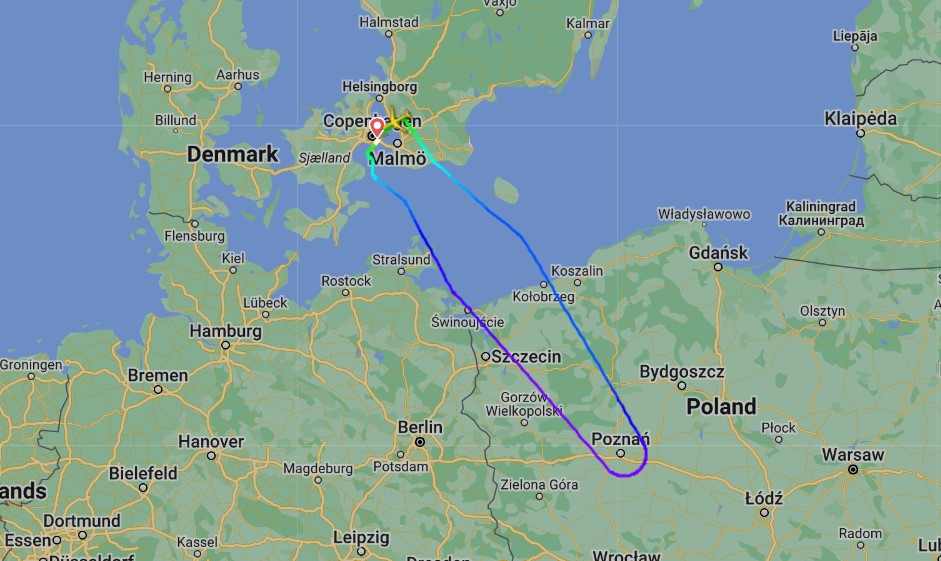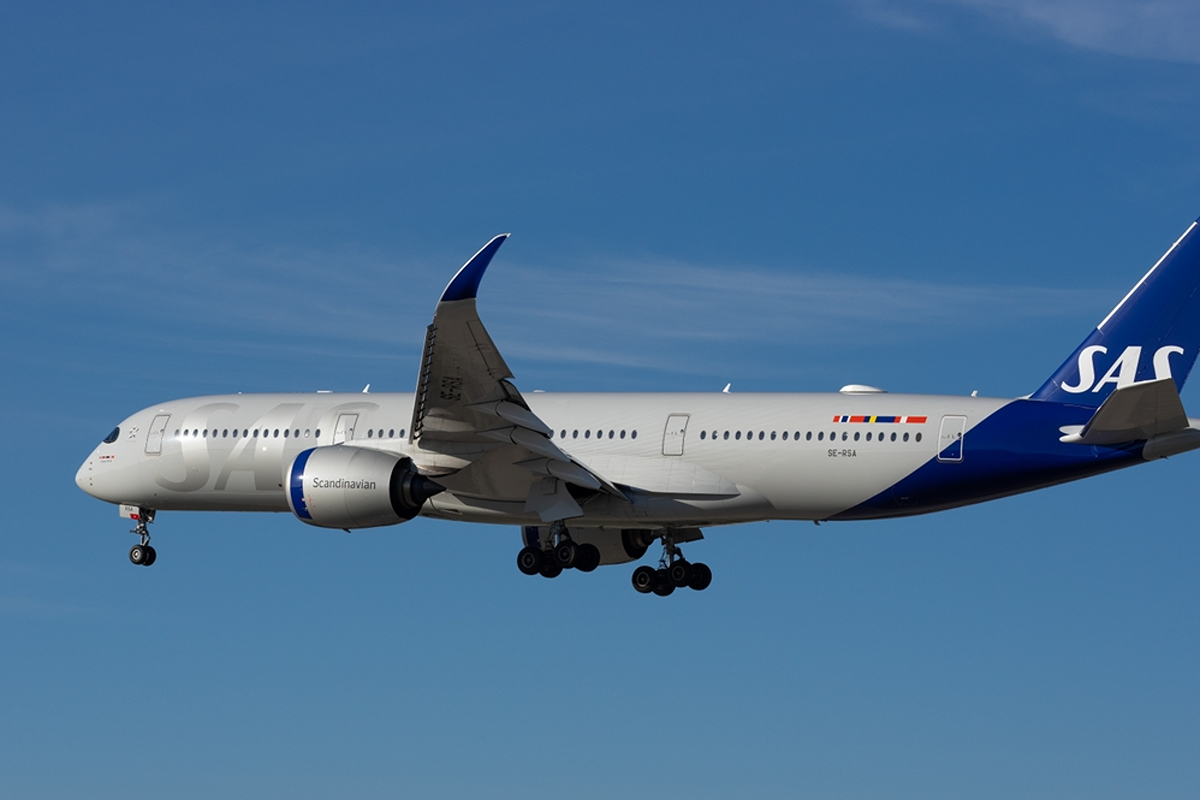An SAS Scandinavian Airlines Airbus A350-900 was struck by lightning as it departed from Copenhagen Airport on September 24, 2024. The aircraft, which had been heading to Shanghai in China was forced to return to its point of departure because of the incident.
The flight concerned, SK997, was operating a regular SAS scheduled flight from Copenhagen Airport (CPH) to Shanghai Pudong Airport (PVG) on the date concerned. The aircraft took off from Copenhagen at 23:48 during a period of thunderstorm activity in the vicinity of the airport. The aircraft is understood to have climbed to its initial cruising altitude of 35,000ft (10,200m) and it was during this phase of the flight that the aircraft was struck by lightning.
With the aircraft around 260 miles (416 km) southeast of Copenhagen and abeam the Polish city of Poznan, the crew contacted air traffic controllers and advised that as a result of a lightning strike, they would be returning to Copenhagen for a precautionary landing. The aircraft was given instructions to turn to a northerly heading and proceed back to Copenhagen. The plane touched back down at 01:14, around 90 minutes after departure.

As reported by Aviation Herald, a passenger onboard SK997 reported: “During the climb at approximately 23:55, there was a loud bang and a bright flash on the left side windows. At 0:04, the captain announced that this was a lightning strike and that all systems were normal. Ten minutes later, he confirmed that he would be back with more information shortly.”
“At approximately 0:28, the aircraft entered a steep left turn in Polish airspace and after that, an announcement was made that we would return to Copenhagen for inspection. At arrival, we had an overweight landing. Service vehicles were waiting at the runway. During taxi, we could feel that the breaks were hot and the aircraft stopped multiple times.”
While overweight landings can cause damage to the aircraft (and the runway surface in some conditions), they can be carried out if the need is great enough. It is likely that the frequent stopping of the aircraft while taxying was to ensure that the brakes, which would have heated up during the overweight landing, had a chance to cool down before needing to bring the aircraft to a halt at the gate.
The flight was ultimately postponed until the following day, given the aircraft needed to be inspected by ground engineers and that the crew onboard would likely have gone out of hours en route had the plane departed once again that night.
The aircraft involved was one of the carrier’s four-strong fleet of Airbus A350-900s registered SE-RSD. This aircraft is 4.3 years old having been delivered to the airline in July 2020. The aircraft can carry up to 300 passengers in a three-class layout comprising 40 business class seats, 32 premium economy seats, and 228 passengers in economy class.
At the time of writing, the aircraft remains on the ground in Copenhagen, 36 hours after the incident.

